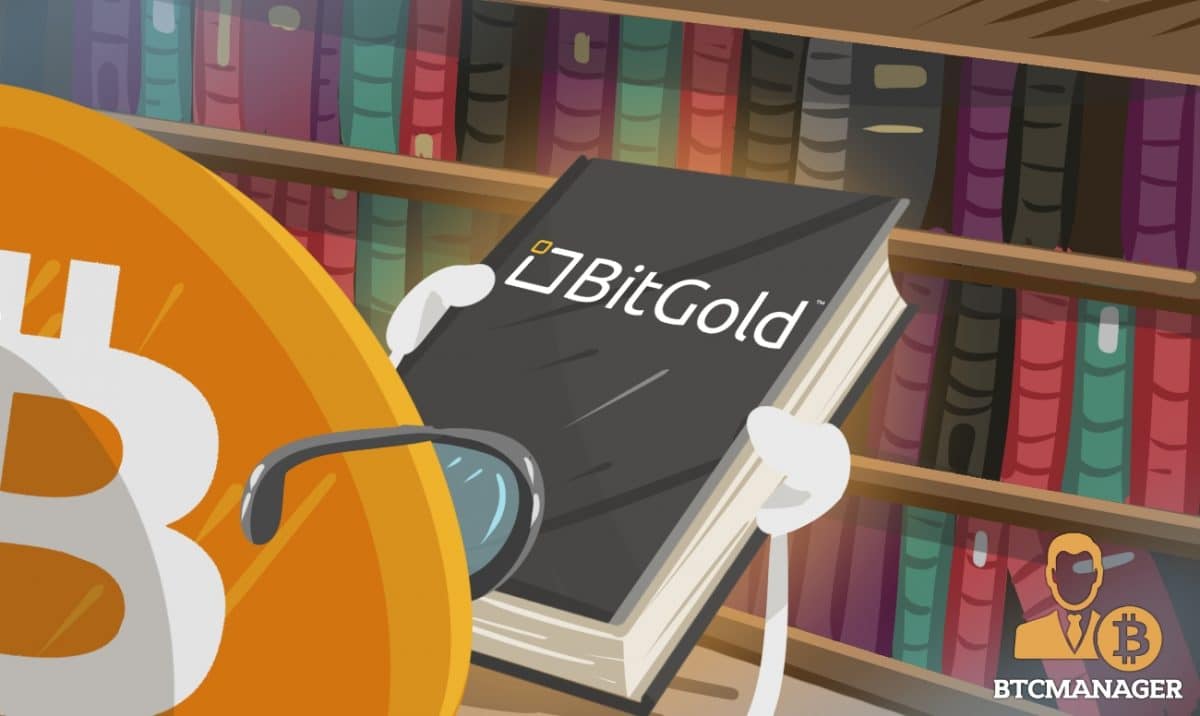The History of Bitcoin Part 2: Bit Gold

Read Part 1 of the History of Bitcoin series here.
While bitcoin is the first functioning decentralized digital peer-to-peer payment system, it has several predecessors that have helped to shape its existence. It will be these forerunners that will make up our discussion in ‘The History of Bitcoin’ series.
What is Bit Gold?
In a 2010 forum post, Satoshi Nakamoto said: “Bitcoin is an implementation of Wei Dai’s b-money proposal on Cypherpunks in 1998 and Nick Szabo’s Bit Gold proposal.”
In this article, we will look at Nick Szabo’s proposal for a decentralized digital store of value called Bit Gold.
In 1998, leading computer scientist and inventor of the concept of smart contracts, Nick Szabo, developed the idea of a decentralized online payment system, which he dubbed Bit Gold.
Szabo drafted a whitepaper for the theoretical decentralized digital currency, but it was never officially published, in which he described Bit Gold as “not only as a payment scheme but also as a long-term store of value independent of any trusted authority.”
In a blog post, Szabo cited the shortcomings of money requiring trust in a third-party to determine its value – which is the case for all fiat currencies – as well as the disadvantages of-of using precious metals as a medium of exchange. The computer scientist stated:
“It would be very nice if there were a protocol whereby unforgeably costly bits could be created online with minimal dependence on trusted third parties, and then securely stored, transferred, and assayed with similar minimal trust. Bit Gold.”
On the technical side of Bit Gold, Szabo went on to explain that it is “based on computing a string of bits from a string of challenge bits, using functions called variously ‘client puzzle function,’ ‘proof of work function,’ or ‘secure benchmark function.’ The resulting string of bits is the proof of work.”
In other words, Bit Gold is based on a proof of work (PoW) mechanism that creates a chain of validated transactions.
More specifically, in theory, Szabo’s creation would function as follows:
- A publicly viewable string of bits, which Szabo referred to as the “challenge string” is created. Next, a user generates the PoW string from the “challenge bits” using a benchmark function.
- The PoW completed is then securely timestamped in a distributed manner by several different timestamp services so on which no single timestamp service needs to be exclusively relied.
- Then, the user adds the challenge string and the timestamped PoW string to a Bit Gold distributed property title registry. For this, no one server is being exclusively relied on to operate the registry.
- The latest created string of Bit Gold provides the challenge bits for the next string. To confirm that, the user is the owner of a particular string of Bit Gold and another user can check the unforgeable title registry.
- To assert the value of a string of Bit Gold, this secondary user can check and verify the challenge bits, the timestamp, and the PoW string.
- This entire process could be automated by software to create a decentralized digital money system.
Szabo concluded in his blog post that:
“All money mankind has ever used has been insecure in one way or another. This insecurity has been manifested in a wide variety of ways, from counterfeiting to theft, but the most pernicious of which has probably been inflation. Bit gold may provide us with a money of unprecedented security from these dangers.”
Bit Gold and Bitcoin
Bit Gold uses a PoW mechanism and mining to create new Bit Gold, but the mining process comes with the computational difficulty increasing to curb supply.
Furthermore, Szabo envisioned bit gold to “become a hedge and safe haven for preserving value in the face of credit and political exposures,” and that it could act as a censorship-resistant store of value that could be particularly valuable in countries with strict financial controls.
Needless to say, Bitcoin fulfills all these functions, which is why it is no surprise that Satoshi Nakamoto partly based it on Szabo’s Bit Gold proposal.
Unlike Bitcoin, however, Bit Gold never came to fruition due to limitations related to how well you can trust the distributed steps. Additionally, the problem of machine architecture required to make the theoretical Bit Gold network run in practice was also problematic.
Did Nick Szabo also Invent Bitcoin?
Due to the creation of the Bit Gold concept, his thought leadership, and experience in advanced cryptography, as well as his working relationship with Hal Finney (who received the first-ever bitcoin transaction), many people believe that Nick Szabo may also be the creator or part of the creator team of Bitcoin.
Furthermore, Aston University researcher Dr. Jack Grieve conducted a detailed textual bias analysis of the Bitcoin whitepaper and concluded that Nick Szabo is most likely the author of the whitepaper and thus the mastermind behind Bitcoin.
In an interview with TechCrunch, a member of Grieve’s team, Skye Grey, cited several reasons as to why he believes Nick Szabo is Satoshi Nakamoto.
This included the following: Grey’s text analysis, Szabo’s authoring of the Bit Gold proposal before Bitcoin was launched, a lack of citation of Szabo’s work by Satoshi (whereas others were cited), and a lack of reaction by Szabo when Bitcoin was launched, despite a decentralized currency having been a project of his for ten years.
Szabo has repeatedly denied all claims that he invented Bitcoin or that he was part of the team that brought the world’s first decentralized digital currency to life.
We will, therefore, probably never really know whether Szabo is behind the project despite many indications suggesting that he could very well be the mastermind behind the current financial revolution.
You can read the entire History of Bitcoin series here.













